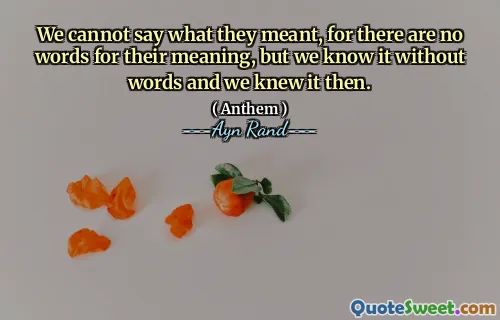
And here, over the portals of my fort, I shall cut in the stone the word which is to be my beacon and my banner. The word which will not die should we all perish in battle. The word which can never die on this earth, for it is the heart of it and the meaning and the glory. The sacred word: EGO
The quote emphasizes the profound importance of self-identity and the acknowledgment of individual ego as a fundamental aspect of human existence. It symbolizes a declaration of personal sovereignty, suggesting that one's sense of self is both a guiding light and a symbol of enduring strength. In a broader context, this respresents the affirmation that individual consciousness and personal values form the core of human purpose and achievement. The act of engraving this word on the fort's portal signifies a declaration of independence, pride, and resilience against collective pressures or adversities. Notably, the emphasis on ego here is not solely rooted in selfishness but can be interpreted as fostering self-awareness, confidence, and a rejection of the subjugation of the individual to the collective or external authorities. The concept resonates with philosophical ideals celebrating individualism and self-assertion. It raises questions about the balance between self and society, the importance of individuality in the face of collective identity, and the role of personal conviction as a beacon for others to follow. Ultimately, this reminds us that preserving one’s inner truth is paramount, as it carries the essence of human potential and vitality. The idea embraces the power of self-recognition and the enduring significance of the individual’s place within the universe, inspiring a commitment to uphold and cherish one’s inner beliefs despite external challenges.









